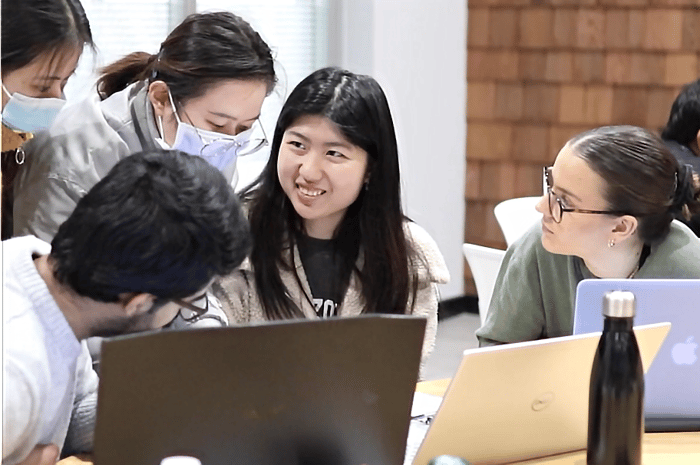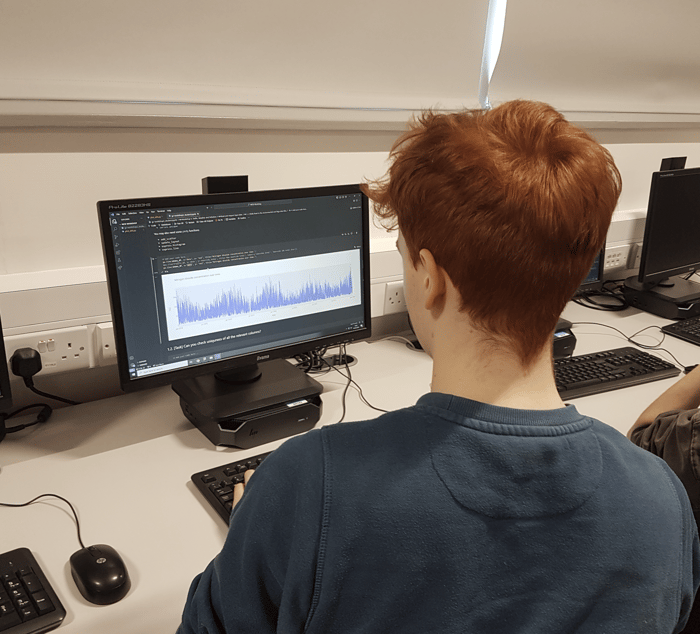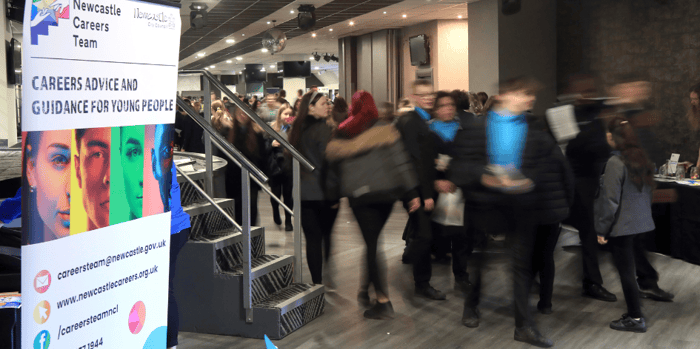
A few weeks ago, we had the pleasure of welcoming Port of Tyne to The Catalyst to host the Maritime Innovation Week 2022 Hackathons, two, two-day challenges aimed at bringing together the most creative, forward-thinking teams of hackers from across the North East and beyond to explore innovative solutions to some of the port and maritime industry’s most pressing problems.
The hackathons took place as part of a wider programme of activities organised by Port of Tyne to highlight and celebrate their 2050 Maritime Innovation Hub, a landmark collaboration between themselves and several innovation-led partners including Drax, Nissan, and the Offshore Renewable Energy Catapult (OREC). The Maritime Innovation Hub exists “to inspire partners to collaborate to develop solutions to technological challenges facing the maritime sector and the wider logistics industry both nationally and globally”.
The hackathon challenges set by Port of Tyne were likewise concerned with developing innovative solutions to problems facing the maritime sector – Challenge #1, Decarbonising the Supply Chain, was all about using data to help the Port meet its objective of achieving net zero by 2030, while Challenge #2, Zero Harm, was all about leveraging the power of data to maintain the Port’s ‘zero harm’ culture and ensure that all of its staff get to go home safe.
From Monday 13th to Thursday 16th June, the first floor of The Catalyst was taken over by teams made up of students and industry workers as they ‘hacked’ their way towards a solution. Each challenge put teams in with a chance of winning £2,000, and competition was fierce throughout, but, in the end, two worthy winning teams emerged.
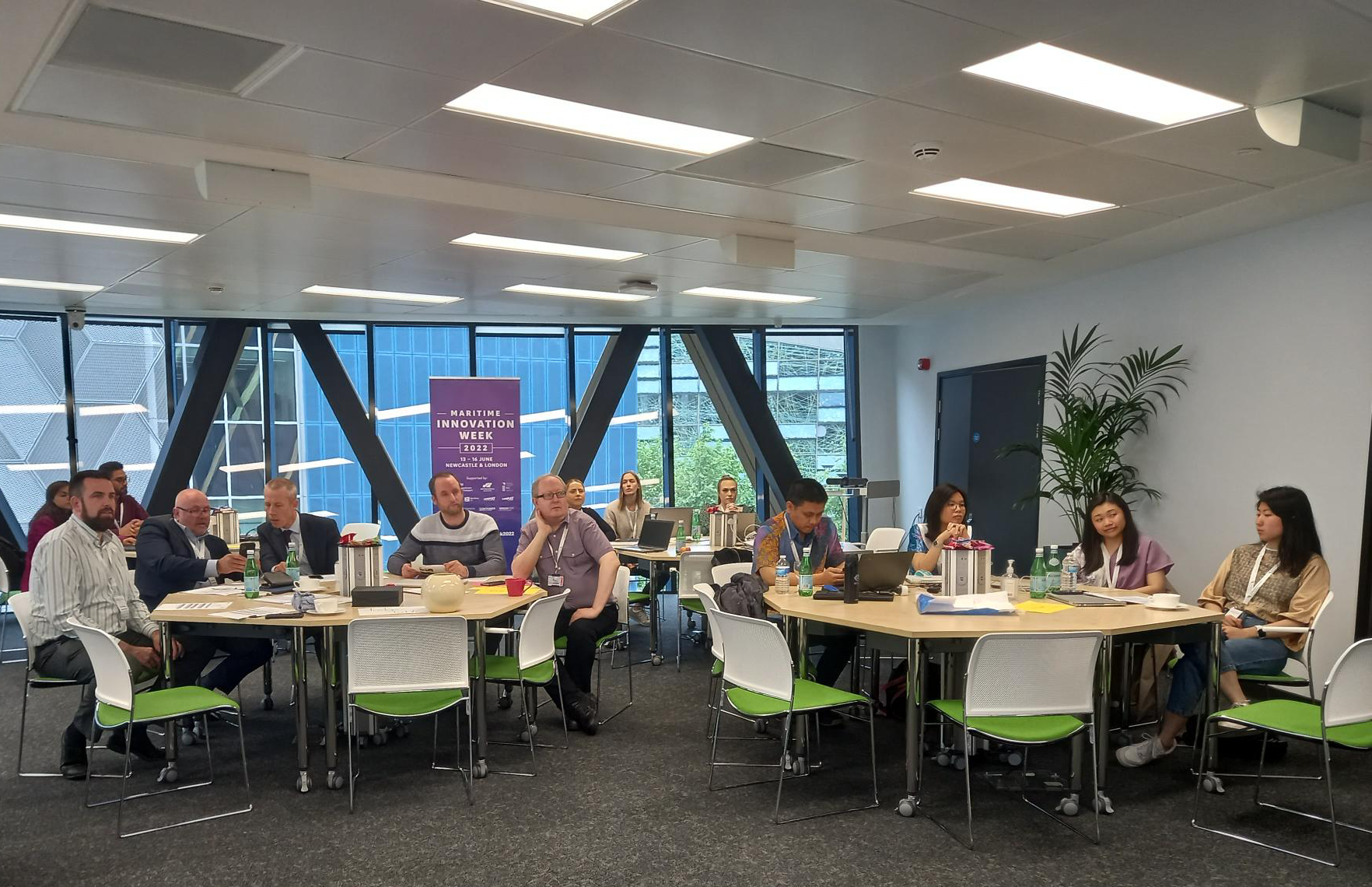
Participants and representatives from Port of Tyne and the National Innovation Centre for Data pictured just before Challenge #1
Challenge #1 began on the Monday morning and, following registration and some essential scene-setting by the Port of Tyne team, plus a warm welcome from our Director Paul Watson, the teams were counted down into the challenge and, almost immediately, solutions began to take shape. Members of our technical team from the National Innovation Centre for Data and several key players from Port of Tyne were on hand to troubleshoot and offer domain-specific knowledge but, for the most part, the teams were quite literally left to their own devices.
On Tuesday afternoon, after over twenty-four hours and countless rounds of coffee out in the foyer, time was officially called on the Decarbonising the Supply Chain challenge and the hack teams began presenting their solutions. Once all the presentations were delivered, the judging panel (which included representatives from the National Innovation Centre for Data and Port of Tyne, plus several external experts invited by the Port) went away to deliberate and determine which team’s solution was deserving of the top prize.
For Challenge #1, that team was the unassumingly named but nevertheless effective Team 1, from Newcastle University. Although it was apparently a close call, Team 1 – which was made up of MSc Data Science students Dr Harry Patria and Mariela Ayu Prasetyo and MSc Digital Business students Danica Vania Linawan and Erine Marcelina Gunawan – delivered a particularly polished and professional solution which made innovative use of machine learning and automation. They also presented their solution in a live link to the main Maritime Innovation Week event held at the 2050 Innovation Hub.
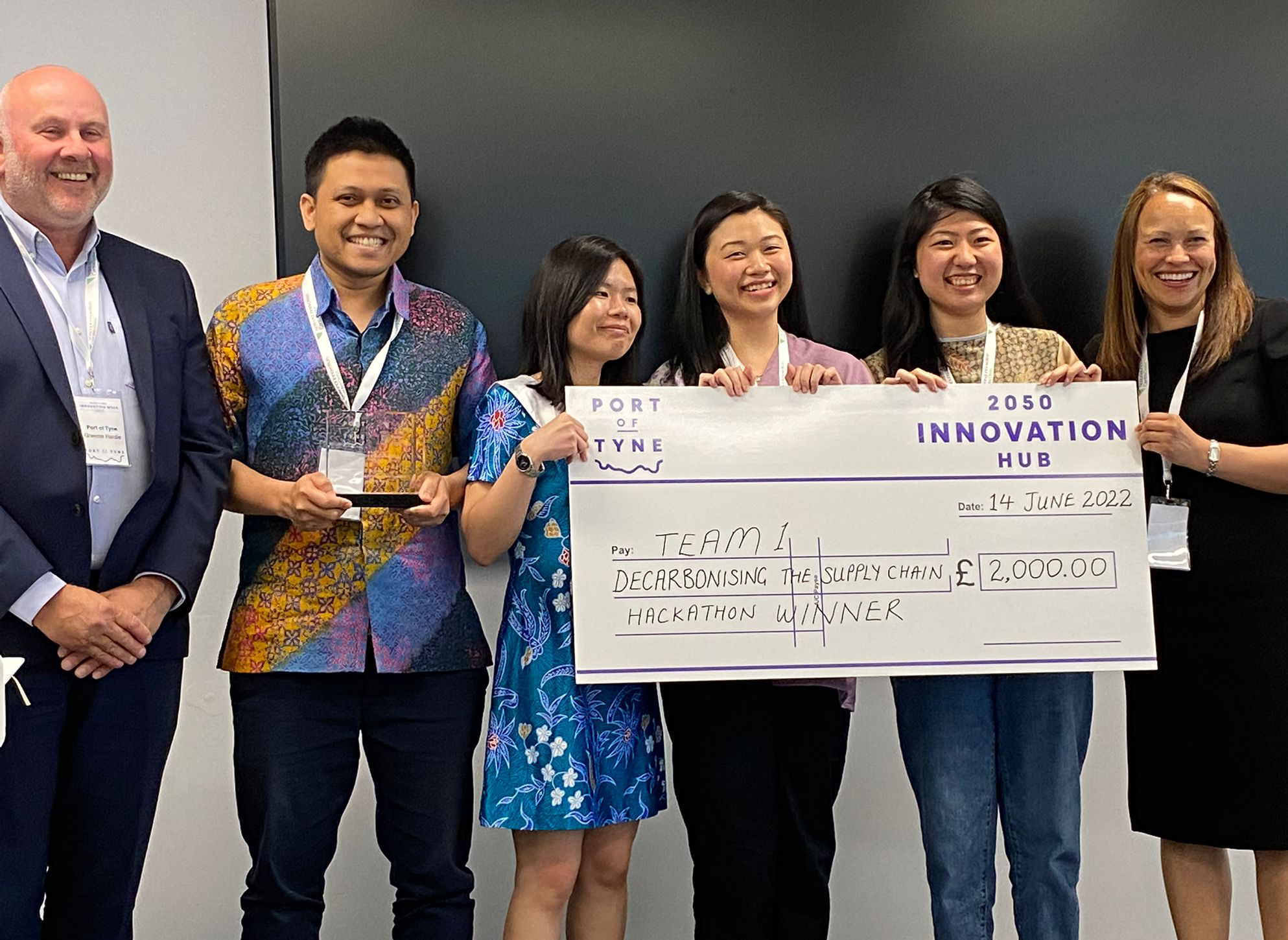
Team 1’s win even earned the attention of the Embassy of the Republic of Indonesia in London, who highlighted the Indonesian team’s achievement on their various social media channels. Congratulations again to Team 1 for presenting such a strong solution!
On Wednesday morning, a number of the same teams from Challenge #1 and a handful of new faces joined us again at The Catalyst for registration and refreshments as we geared up for Challenge #2, Zero Harm. Port of Tyne’s Head of HSEQ Jen Maddison set the scene for the challenge, and after another enthusiastic countdown, the teams took to their laptops and the hacking resumed.
Although there were slightly fewer teams taking part in this challenge, the fact that many people were participating for a second time meant that the mood was even more competitive than before, despite the friendly atmosphere and piles of Haribo on each table suggesting otherwise. On Thursday afternoon, shortly after lunch, time was called on the Zero Harm challenge and the teams presented their solutions ahead of the winner being announced.
For the judging panel on Challenge #2, one team presented a solution which really stood out from the rest, and that team was Team Pîrî Reis – also from Newcastle University. The team, which was made up of MSc Data Science student Muzaffer Şenkal and MSc Transport Engineering student Melike Bektaş, presented a novel and actionable solution which Port of Tyne’s Jen Maddison said was very close to what they would like to implement.
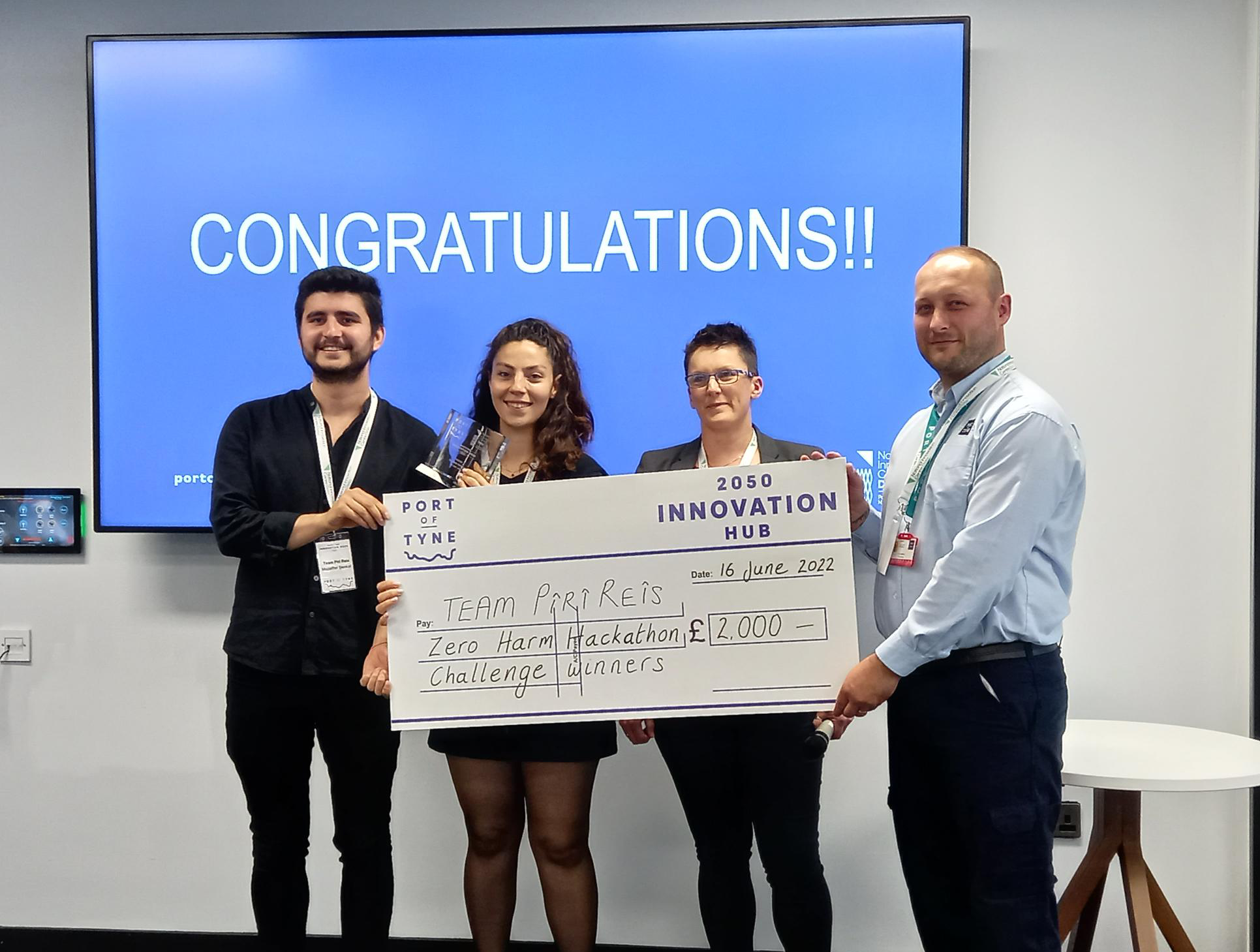
Team Pîrî Reis were one of the teams who joined us for both challenges, and we and Port of Tyne were pleased that they stuck around and proved so successful in Challenge #2. Congratulations again Team Pîrî Reis!
The Maritime Innovation Week 2022 Hackathon was the result of weeks of planning and coordination between ourselves at the National Innovation Centre for Data and the team from Port of Tyne, and we wanted to take a moment to thank everyone involved in putting it together, and everyone who took part in the challenges themselves. We’re looking forward to hosting more hackathons in the not-too-distant future, so if you’re interested, be sure to keep an eye on our Twitter and LinkedIn feeds for all the latest news.
